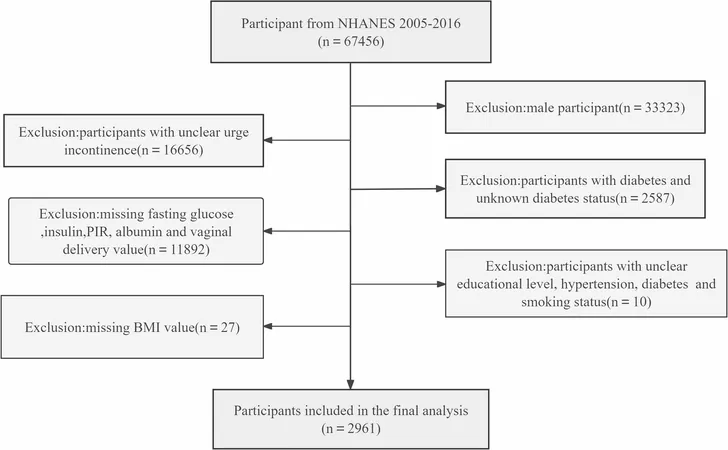
Are You or Someone You Know at Risk? 10 Warning Signs of Potential Suicide Revealed!
2025-09-17
Author: Yu
A Wake-Up Call for Mental Health Awareness
*Warning: This story contains sensitive references to suicide.* In a groundbreaking study by the Institute of Mental Health (IMH) in Singapore, researchers have uncovered alarming warning signs that could indicate a heightened risk of suicide. If you or someone close to you displays four or more of these acute signs—such as anger, purposelessness, recklessness, and anxiety—you should take immediate action.
The Study's Key Findings
This pioneering study, the first of its kind in Singapore, reveals that these warning signs often surface just a week before a suicide attempt. In stark contrast, those who aren't at risk typically present only one of the ten identified warning signs.
What Are the Warning Signs?
The ten warning signs are encapsulated in the memorable acronym "Is Path Warm": - **I**deation - **S**ubstance abuse - **P**urposelessness - **A**nxiety - **T**rapped feelings - **H**opelessness - **W**ithdrawal - **A**nger - **R**ecklessness - **M**ood changes These indicators serve as a crucial reference for understanding the mental state of someone who may be in distress.
Innovative Research Approach
Using a method called "psychological autopsy," researchers meticulously examined the circumstances and mindset of individuals who died by suicide, cross-referencing interviews with family and friends, and sifting through coroner’s reports. This study sampled 73 suicide cases and 73 control cases, covering ages from 10 to 76.
Cultural Context Matters
Unlike much existing research—which often draws from Western contexts—this study provides insights tailored to Singapore's unique cultural and social landscape. IMH highlighted that while core risk factors may align with global trends, local experiences of distress and willingness to seek help can differ significantly.
Factors Contributing to Suicide Risk
Beyond the warning signs, researchers found several life challenges linked to suicide risk, including unemployment, substance abuse, and fraught relationships. Strikingly, nearly 52% of subjects who died by suicide had no educational qualifications beyond a diploma from the Institute of Technical Education, compared to only 13.7% within the control group.
The Mental Health Connection
In line with previous research, about 71% of the individuals who took their own lives had been diagnosed with mental health conditions, notably major depressive disorder, which affected 40% of cases. Alarmingly, symptoms of depression were reported to be significantly more severe in those who died by suicide.
A Call for Awareness
The study emphasizes the importance of recognizing subtle warning signs like withdrawal or mood changes, which can often be mistaken for regular stress. It's critical for family, friends, and the community to be vigilant and educated on these signs.
Support is Available—Don't Hesitate to Reach Out!
If you or someone you know is struggling, help is always within reach. You can contact the National Mental Health Helpline at 1771, or the Samaritans of Singapore Hotline at 1767. Remember, reaching out can be the first step toward healing.






 Brasil (PT)
Brasil (PT)
 Canada (EN)
Canada (EN)
 Chile (ES)
Chile (ES)
 Česko (CS)
Česko (CS)
 대한민국 (KO)
대한민국 (KO)
 España (ES)
España (ES)
 France (FR)
France (FR)
 Hong Kong (EN)
Hong Kong (EN)
 Italia (IT)
Italia (IT)
 日本 (JA)
日本 (JA)
 Magyarország (HU)
Magyarország (HU)
 Norge (NO)
Norge (NO)
 Polska (PL)
Polska (PL)
 Schweiz (DE)
Schweiz (DE)
 Singapore (EN)
Singapore (EN)
 Sverige (SV)
Sverige (SV)
 Suomi (FI)
Suomi (FI)
 Türkiye (TR)
Türkiye (TR)
 الإمارات العربية المتحدة (AR)
الإمارات العربية المتحدة (AR)